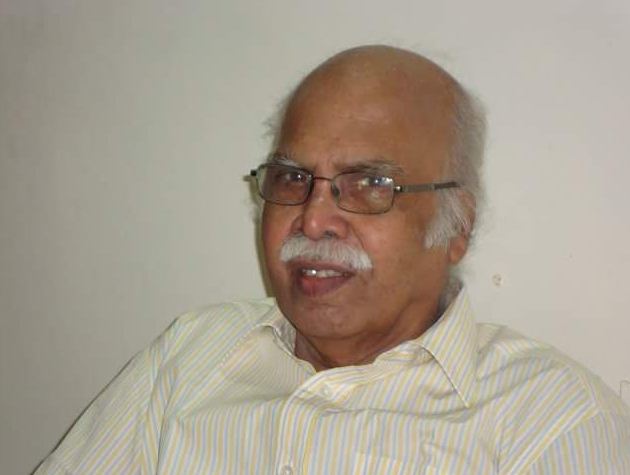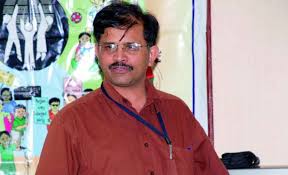|
Abstract
This paper is based upon primary, secondary data, review of literatures and own field observation. It accumulated our past and present experiences in social development sector. While we were student of social work we found some isstes related to parenting/ responsibilities of fatherhood for a healthy family, child support etc. during field practicum. Similarly, during professional carrier we gather so many information from the fields through unstructured interviews with school going and non-school going children (age 10-19/20 years old), parents / care givers/ guardians on 'concepts of fatherhood, 'Role of father in a family; 'child support' etc. This paper attempts to explore that the ideal father is a person involved in childcare, who sacrifices himself (like the mother) placing more value on bringing up the child and spending time with him/her than on his own goals and life aspirations. More realistic expectations require that the father should provide psychological support, care and security, and take decisions concerning the child. In their own and their wives' opinion, however; fathers more often take the responsibility for participating in shared pleasures, transportation (driving/fetching children to/from kindergarten, school, after-school activities), more rarely for going for walks or doing homework. It also focuses on the rationale of national policy on family in India and the United Nations Commissions for Child Rights (UNCRC). At the same time this paper has suggested some recommendations to overcome the issues regarding fatherhood and rights of child. Key Words: Fatherhood, Rights of Child, Child Support, Care, Security As I picked up Sri Shankar Pathakji's book "Social Work And Social Welfare" my thoughts ran down memory lane, to the time when I left my college in 1974 with an incomplete masters in social work behind me. I had my own reasons way back then, even as just an eighteen year old, for not completing the MSW-because I felt that much of what they taught us in theory had absolutely none or very little relevance to reality, and within me began a rebellion to book learning of social work, and I left following my craving to be in the field. So when Ramesh and shri.Pathakji asked me to be a part of to days programme, I asked myself over and over again if they had made a mistake, and if I was the right person to be given the task for which I stand before you today. Of course I had not read the book at that time. Now that I have read it, let me say that had I been asked to study this book perhaps 35years ago, in 1974, I would have completed my MSW without questioning the relevance of theoretical knowledge - knowledge such as what I gained in this book, that would have lent itself to strengthening my practical. social activism quest. Anyway, it is not I too late and I therefore thank you Sir, Sri Shankar Pathakji and Ramesh for giving me this golden opportunity to become a student, to feel empowered by relevant knowledge one has learnt reading this absolutely revealingly written and brilliantly documented book. I also bow in salutation to one we have all revered as our role model icon, shri. Doreswamyji, and completely humbled, stand before as one in awe.
"Sahitya - Samaja Sangama" is an excellent felicitation volume in honour of Prof.Shekhar Pujar, an avantgarde, multifaceted personality. A professional social worker, creative writer, poet, singer, theatre artist, researcher, teacher, and mentor; Prof. Pujar is a rare combination of all these roles. He is the first Indian social work scholar to explore the intersection between folklore and social work. In a country with the majority of the population being rural and tribal, oral tradition of the people has not been given due recognition by social scientists and social work professionals neither in research nor in practice. Prof.Pujar's research study and the book "Social Work in Kannada Folk Songs" are pioneering efforts by a tenacious scholar without a research guide and against vicissitudes which do not merit mention here.
I have known Dr. S.F. Pujar for a year and a half. Majestic in personality, composed in thoughts and combination of both literary and social endeavours is a rich source of knowledge to the students. He is a person of simple living and noble thinking.
Once I was invited to the Department of Social Work for inaugural function of social work association where I listened to his speech for the first time. Further all the senior students who were well aware of Dr. Pujar's multifaceted personality, pleaded him to sing a song. He obliged and sang, "Giri Giri Gindi Ibatti Undi" I was delighted and thrilled about a person above seventy years keeps such a great grip and enthusiasm. It cautioned me of my future life and I addressed myself, "if you live above seventy live like Dr. Pujar and build a robust health and happy life. OLD AGE
Aging is a long term process of change for both individuals and populations. However, the concept and process of aging are surrounded by considerable controversy and suspect evidence. Human aging is a process of differentiation and individualization. Aging has two integral elements – intrinsic and extrinsic. Intrinsic aging means those age-related processes that are internal and specific to the individual, while extrinsic aging comprises those age-related changes that are brought about by external factors related to the physical and social environment of the individual (United Nations,1982 ). Older persons, who were born at a particular historical time, and in a particular region and society, belong to a cohort sharing similar social and historical experiences, life-styles and other characteristics which differentiate them from other older persons born at different historical periods in diverse social situations. Individuals derive social meanings and develop expectations regarding themselves, their families and their society as they grow older from these processes of aging and within the context of social, historical, cultural and economic situations. Paper presented in the National Conference on ‘Transforming the lives of the oppressed and the under privileged through social work’, 15th March 2013, Department of Social Work, Hindu College, Chennai
Today we have Twenty 20 Cricket match. We have fun and it’s thrilling. And it’s over in a few hours. You are famous overnight. Very much result oriented. Social Work is also increasingly being seen in the same manner by many – individual donors or CSR-Corporate Social Responsibility or govt or even a bilateral organisation. In this context, Michael Reisch aptly says that ‘social work practice is forced to shift from long term sustainability to short term outcomes’ (Michael Reisch, 2011)[1]. The face of ‘Social Work’ is forced to change by other agents who are behaving as ring masters than the wish of the stake holders. If we, the professional social workers succumb to this, soon all our theories of conscentisation, Community Organisation, Case work, etc may have to be restructured to suit the quick fix approach! Studies on ageing conclude that institutional care of the elderly is not desirable for their emotional well - being, though their basic needs of food, clothing and shelter are met by the homes for the aged. Further, such an approach for the welfare of the elderly would legitimize the segregation of the elderly from their homes and familiar surroundings. In financial terms, homes for the aged are costly propositions while the number of beneficiaries is very small. As an elder care service, institutionalization should be considered only as the last resort.
|
Categories
All
Social Work Learning Academy50,000 HR PROFESSIONALS ARE CONNECTED THROUGH OUR NIRATHANKA HR GROUPS.
YOU CAN ALSO JOIN AND PARTICIPATE IN OUR GROUP DISCUSSIONS. MHR LEARNING ACADEMYGet it on Google Play store
|
SITE MAP
SiteTRAININGJOB |
HR SERVICESOTHER SERVICESnIRATHANKA CITIZENS CONNECT |
NIRATHANKAPOSHOUR OTHER WEBSITESSubscribe |
MHR LEARNING ACADEMY
50,000 HR AND SOCIAL WORK PROFESSIONALS ARE CONNECTED THROUGH OUR NIRATHANKA HR GROUPS.
YOU CAN ALSO JOIN AND PARTICIPATE IN OUR GROUP DISCUSSIONS.
YOU CAN ALSO JOIN AND PARTICIPATE IN OUR GROUP DISCUSSIONS.
|
|








 RSS Feed
RSS Feed





